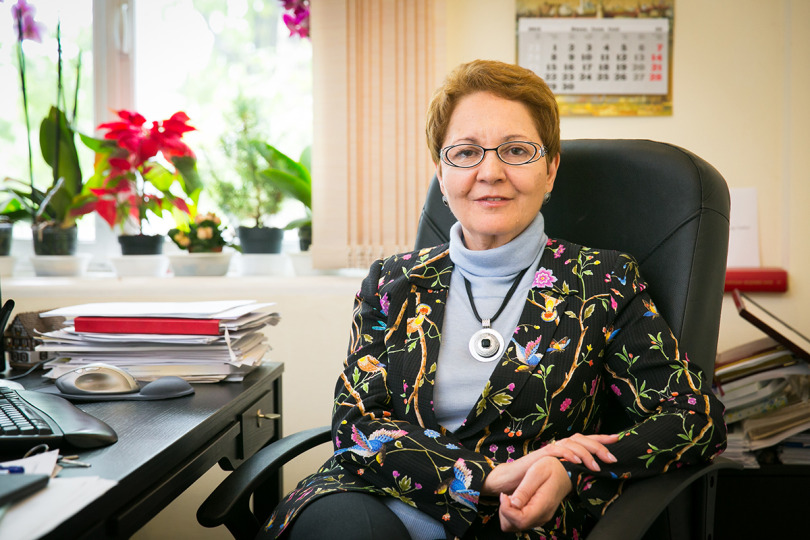'I Gulped down Ginzburg’s Article with Greedy, Insatiable Pleasure'
On 1st to 3rd June, the remarkable Italian historian and one of the founders of microhistory, Carlo Ginzburg will give a series of open lectures at the HSE. Professor Ginzburg has been invited to Moscow by the Poletayev Institute for Theoretical and Historical Studies in the Humanities (IGITI). His translator, Professor at the School of Philosophy, Sergey Kozlov spoke to the HSE News Service about how he was inspired to translate Ginzburg’s work into Russian which led to them becoming firm friends.
Understanding Politics behind the Scenes from the Public Appearances of Elites
On Tuesday, May 26, Franziska Keller, Ph.D. candidate at New York University and visiting researcher of the HSE International Centre for the Study of Institutions and Development, presented a report called ‘Shaking hands in public. What elite co-appearances tell us about the politics behind the scenes’. This seminar marks the 9th joint Research Seminar on Diversity and Development hosted by the International Centre for the Study of Institutions and Development and NES Centre for the Study of Diversity and Social Interactions.
Starting a New International Journal on Russian Politics
A new academic journal, Russian Politics, has just been launched by Brill Academic Publishers (Leiden, Netherlands and Boston, USA). Three members of the editorial board are representatives of the Higher School of Economics — Professor Andrei Melville, Dean of Faculty of Social Sciences, Professor Nikolay Petrov and Professor Rostislav Turovsky. The first issue will be published in early 2016 and there will be four issues per year.
HSE Scholars Co-author International Encyclopaedia of the Brain
HSE Scholars Co-author International Encyclopaedia of the Brain Vasily Klucharev, Leading Research Fellow at the HSE Centre for Cognition & Decision Making, and Anna Shestakova, Director of the Centre, have become co-authors of a chapter in ‘Brain Mapping’, a three-volume encyclopaedic collection.
International Law to Be Discussed at HSE
On the 27th May 2015 Professor Wolfgang Graf Vitzthum, of the University of Tubingen will lead a discussion at the HSE Faculty of Law on Current Problems in International Law. The discussion coincides with the launch of a second Russian edition of his authoritative textbook which describes the branches, institutions and fundamental concepts of international law and its development. The discussion is open to all and will be in English at 10.30 am in room 315, 17 Malaya Ordynka Street.
82%
of Russians believe that they can influence what takes place in the buildings and courtyards where they live.

RLMS HSE: 20 Years On
The 2nd Russian Longitudinal Monitoring Survey User Conference takes place on the 22nd and 23rd May 2015 at the HSE. Polina Kozyreva, Director of the Centre for Longitudinal Research at HSE tells the story of the project and explains its importance for current academic research.
Building the Largest Database on Sustainable Development and Conflict Transformation to Make the World More Peaceful and Just
On 20th May 2015 Dr Michael Minch, Professor of Philosophy at Utah Valley University, gave an open lecture at HSE Nizhny Novgorod. A specialist with a unique combination of interests ranging from theological ethics to politics, Professor Minch brings together what at first glance appear to be irreconcilable — politics and ethics.
HSE International Laboratories Celebrate 5 Year Anniversary
It is five years since the HSE began setting up international laboratories. HSE’s Deputy Vice-Rector, Marina Litvintseva, Head of Laboratory for Algebraic Geometry, Fedor Bogomolov, and Ronald Inglehart and Eduard Ponarin from HSE Laboratory for Comparative Social Research reflect on the results of the work conducted last year and on the achievements of the laboratories.
HSE Researcher Publishes an Article in 'Nature Genetics'
Maria Nazarova, Junior Research Fellow at the Centre for Cognition & Decision Making co-authored an article published in Nature Genetics — one of the world’s most authoritative journals, dedicated to the latest achievements in genetics.


Application deadline: May 20